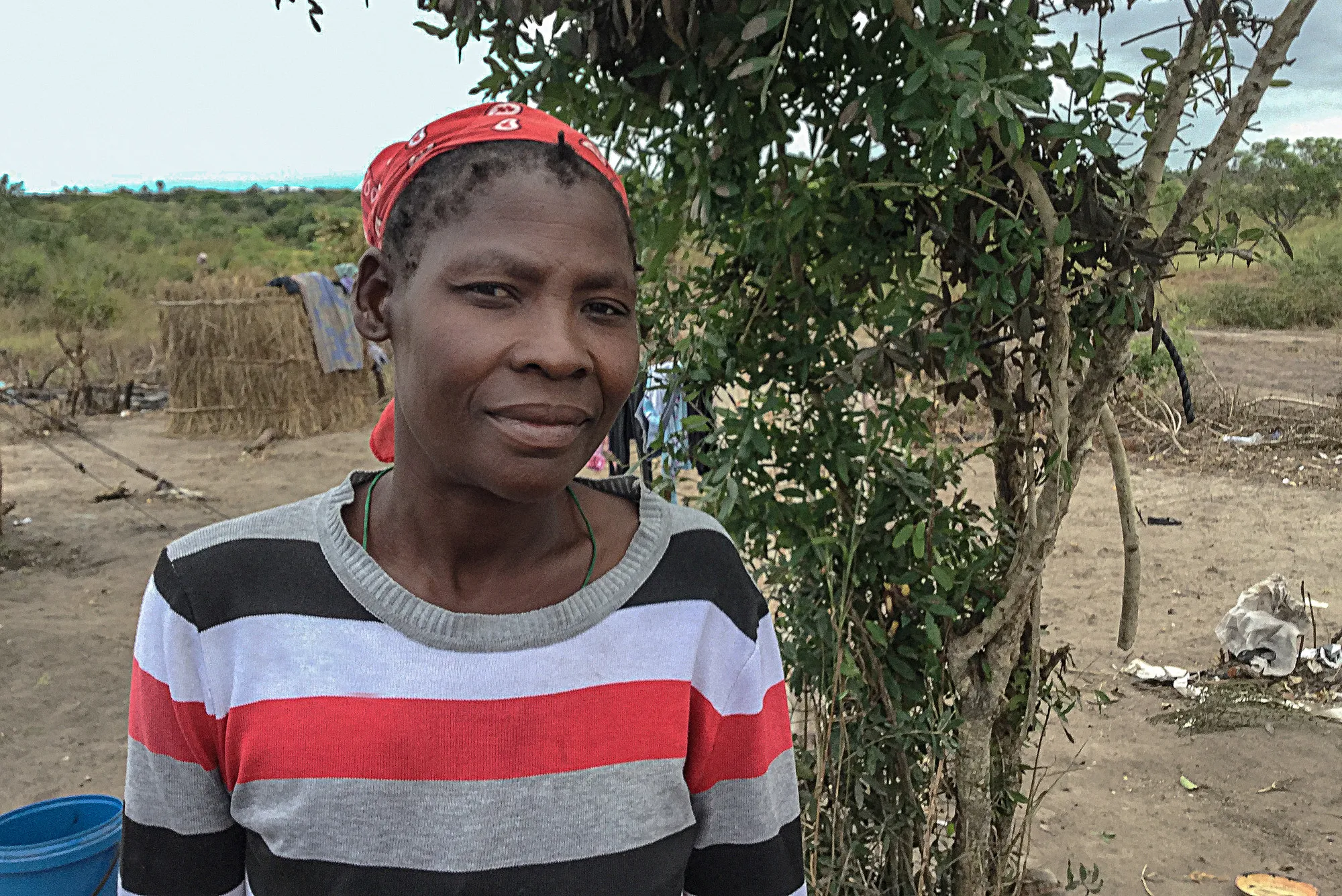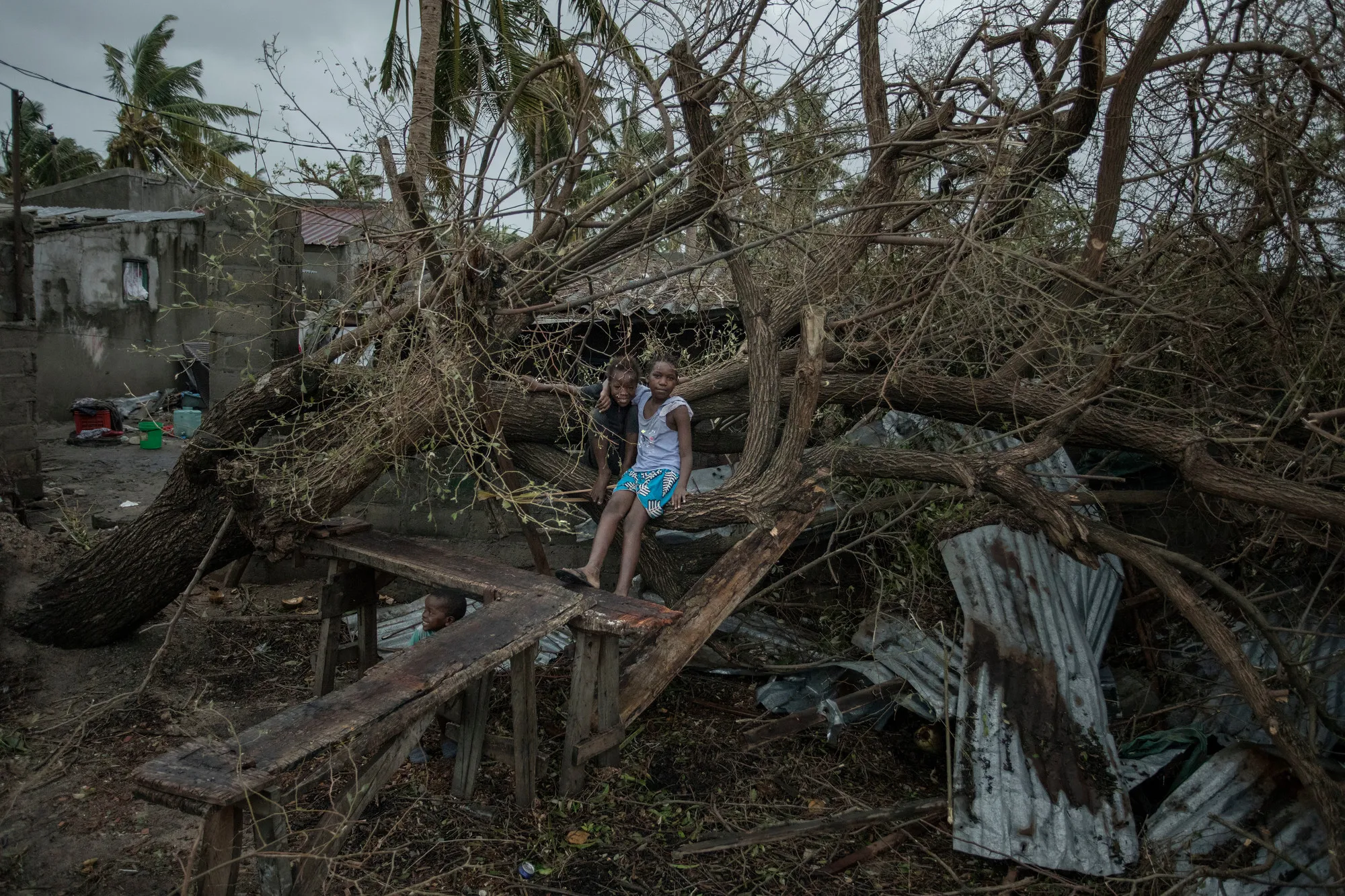When Cyclone Idai, the strongest recorded cyclone ever to hit southern Africa, made landfall in central-eastern Mozambique March 15, it flattened villages and ripped roads in half. The storm’s fierce winds and torrential rains destroyed homes and decimated farmlands, displacing millions. Many of those left homeless relocated to temporary camps. Victoria Rosario, 46, now lives in a camp in Mutua outside of Beira city in northern Mozambique, one of the hardest-hit areas. A single mother, she lives with her nine children in a small tent on an assigned plot. They share with neighbors a tank of drinking water and three temporary bathrooms — one for men, one for women, and one for children.
“When we were warned that a cyclone was going to strike, I brought my children here, but we did not have anything to eat so I returned home to bring food,” she says.
Her journey quickly turned dangerous and nearly cost Victoria her life.
I saw people fall from the trees into the water.
Before Idai, Victoria ran a bountiful little farm with 20 chickens, rice, corn, tomatoes and other crops that provided the family of 10 with three meals a day. By the time she arrived home the storm had started, and the nearby river was overflowing.
“The chickens were washed away. I saw them drifting in the water.”
She looked for a canoe to return to her children.
The rapidly approaching storm did not give Victoria much time. As the river grew faster and higher, canoeing, the only means of transportation at that point, became increasingly impossible. When another day passed and she still could not find a boat, Victoria decided to take shelter with others.
“The water reached where I was staying and started submerging us, first it was up to my knees, then to my chest, then it reached my neck. That is when we all had to climb the trees so that we didn’t drown,” she says.
Victoria stayed up a tree with a group of people, including children, for two days without food or water.
“I was afraid that one baby would fall so I carried him. I took out my skirt and tied it around the branch, the baby, and myself,” Victoria says. “I saw people fall from the trees into the water. Two men that fell in front of my eyes were pulled away by the current.”
In the water below, those with canoes could no longer navigate the high waters, some even passing out while rowing after being in the eye of the cyclone for several days.
When the storm finally subsided, helicopters rescued Victoria and others stranded on treetops. She was then able to return to her children.
“When I returned, I realized I didn’t have any information on my sister Rita.”


